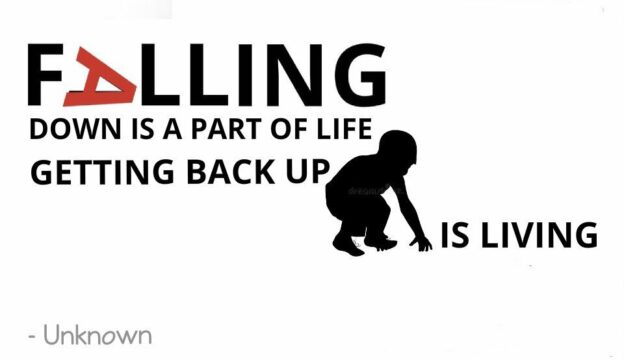The horrors of the tochacha, the parsha’s description of what Klal Yisrael will endure should it drift from heeding the Torah, left our ancestors dejected. As Rashi writes at the beginning of parshas Nitzavim (Devarim 29:9), when they heard the 98 curses in our parshah, in addition to the 48 in parshas Bichukosai, “their faces paled” and they said, “who can possibly persevere through this?”
Significantly, in the yearly Torah reading cycle, these parashos coincide with Elul’s march toward the Yimei Hadin. And despondence this time of year is a seasonal affliction.
We, too, can feel dejected as Rosh Hashanah comes close, as we will be judged on things that we repented for last year but may need to do the same once again.
But feeling despondent is counterproductive.
The late comedian Mitch Hedberg would deadpan: “I used to do drugs.” And then, after a short pause, add: “I still do. But I used to, too.”
The line may have been a throw-away absurdity. But I think he was describing how he had once (perhaps more than once) quit drugs, only to come to re-embrace them. When he was clean, he “used to do drugs”; now, off the wagon, he does them again.
Many of us can relate, having resolved each year to improve in some of the very same ways we had resolved to improve the year before. We “used to” do things that we currently do too.
In a famous letter, Rav Yitzchok Hutner, zt”l, told a despondent student to realize that one can “lose battles but win wars,” that what makes life meaningful is not beatific basking in the sublime company of one’s accomplishments but rather in one’s dynamic struggles.
Shlomo Hamelech’s maxim that “Seven times does the righteous one fall and get up” (Mishlei, 24:16), Rav Hutner continues, does not mean that “even after falling seven times, the righteous one manages to gets up again” but, rather, that it is only and through repeated falls that a person achieves. The struggles – even the failures – are inherent elements of what can, with determination and perseverance, become an ultimate victory.
Facing our mistakes squarely, and feeling the regret that is the bedrock of repentance, is essential. But it carries a risk: despondence born of battles lost. But the war is not over. We must pick ourselves up. Again. And, if need be, again.
And, as to the curses in the parsha, as Moshe reassured the people (see Rashi, Devarim 29:9), despite all the past and possible future failures, “You are still standing.”
© 2022 Rabbi Avi Shafran
